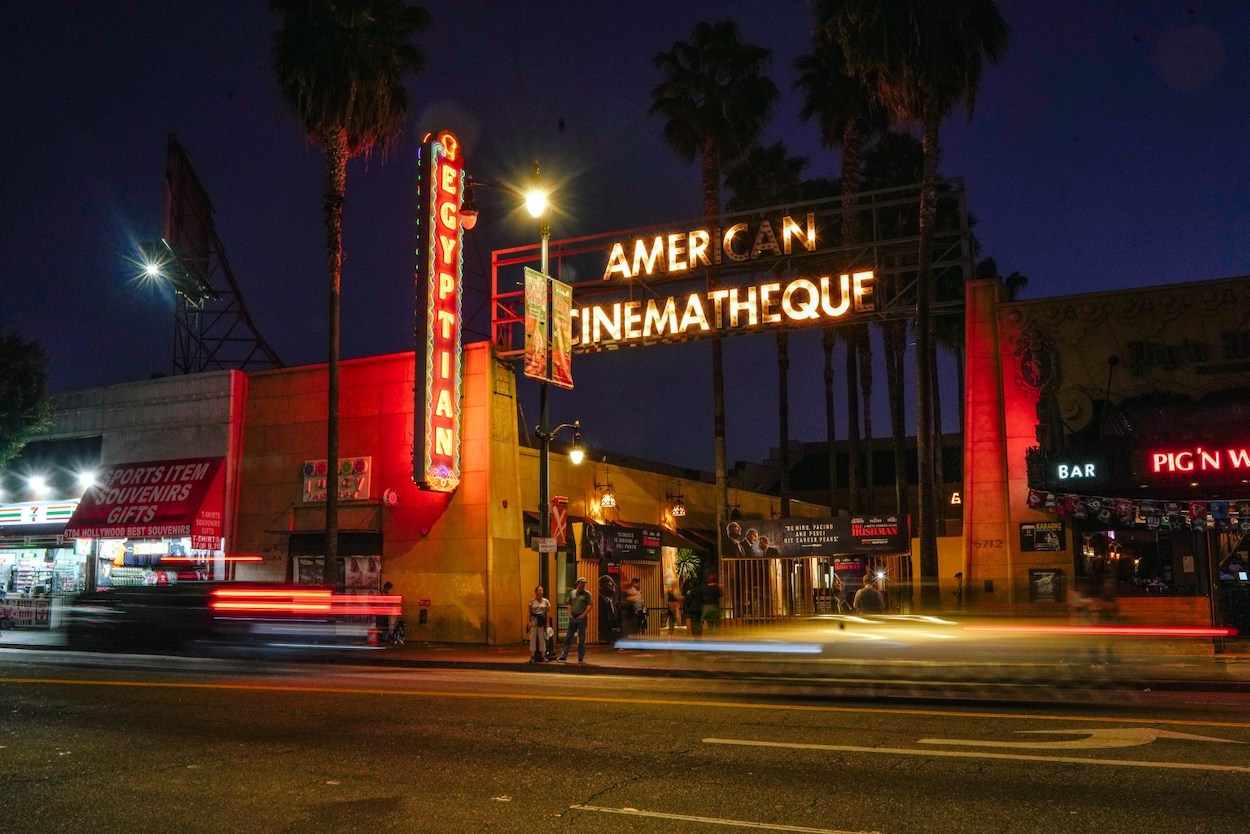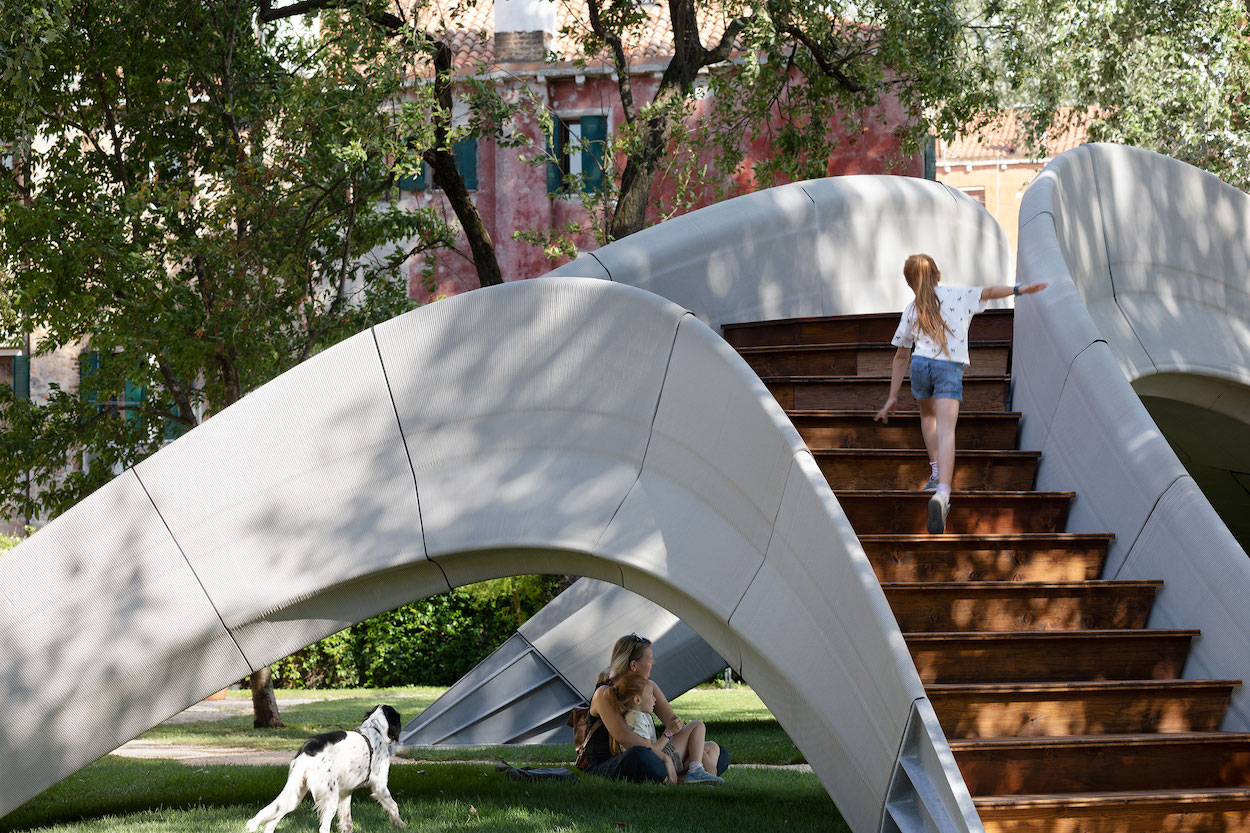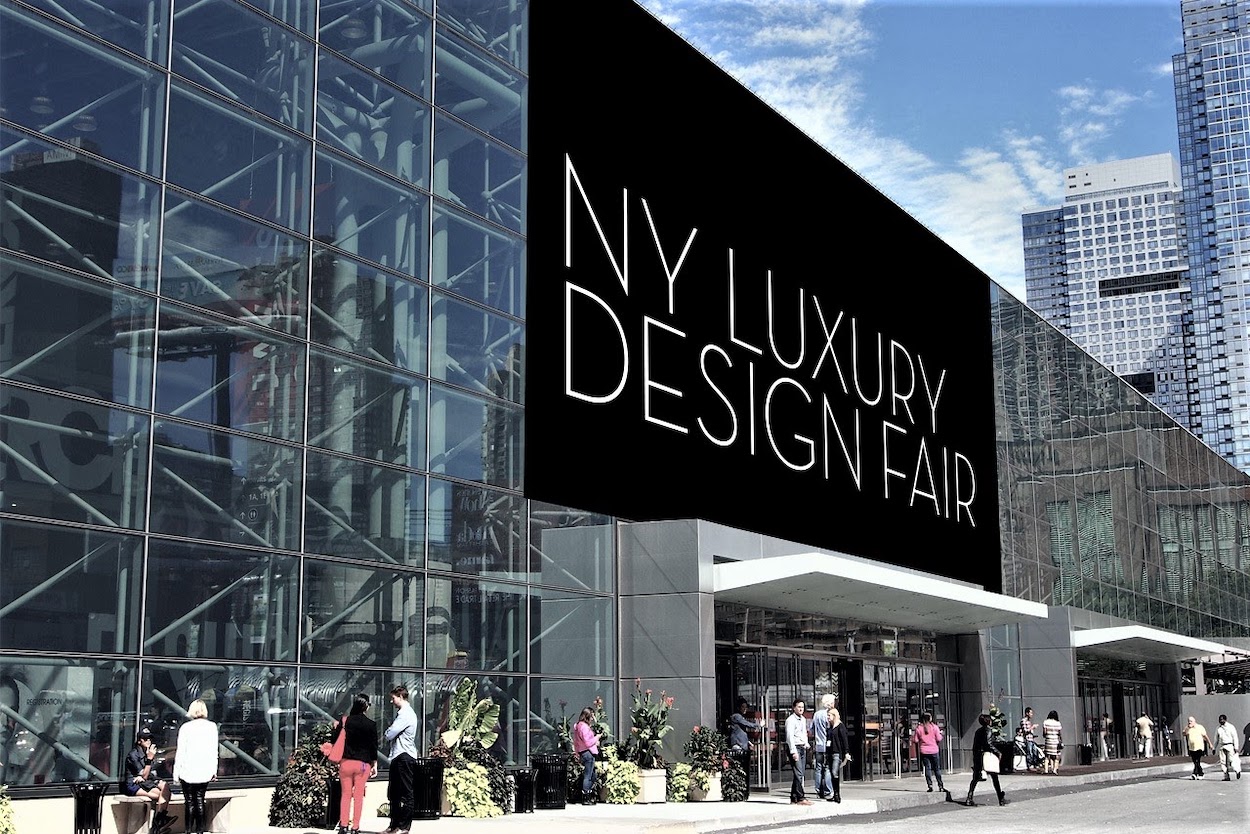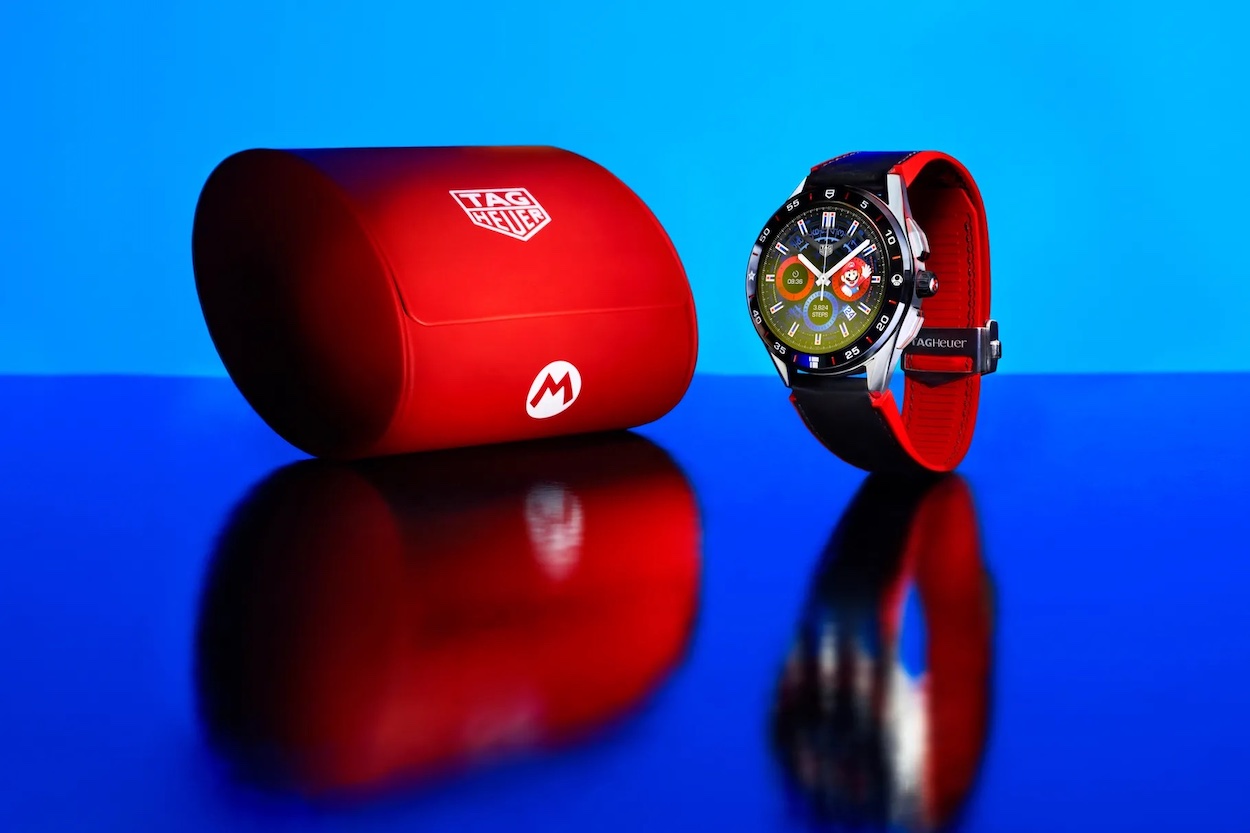Our daily look at the world through the lens of design.
BY THE EDITORS July 20, 2021
The Egyptian Theatre in Hollywood. Image courtesy of Social Factory LA …
The Design Dispatch offers expertly written and essential news from the design world crafted by our dedicated team. Think of it as your cheat sheet for the day in design delivered to your inbox before you’ve had your coffee. Subscribe now.
Have a news story our readers need to see? Submit it here.
Netflix purchases Hollywood’s Egyptian Theatre during a citywide closure of cinemas.
Under the operation of the nonprofit American Cinematheque for more than two decades, the 100-year old Egyptian Theatre’s recent financial downturn compelled Netflix to help preserve an essential piece of Hollywood history. Although the shift in ownership sees the demise of certain attributes of the theater, the streaming mogul intends to restore its Egyptian-Revival Style architecture, revamp the interiors, and upgrade its digital and sonic equipment. Cinematheque maintains the ability to work autonomously during the weekends while Netflix controls the screening schedule during the week. “It made more sense for the American Cinematheque not to own the Egyptian, and to get the support of an organization that could keep the building in great shape and handle the seismic retrofitting that’s required by the city and state,” says Gwen Deglise, deputy director and co-director of programming at the Cinematheque.
After ten weeks of “toxic philanthropy” protests, MoMA employees are feeling the strain.
After ten weeks of protests earlier this summer, the Strike MoMA Campaign—which ended on June 11 and featured teach-ins about subjects such as American racism and Palestine, chants of “burn this fucking empire down,” and demonstrations involving red-dyed water to symbolize blood—is still having a lasting impact on the museum’s employees. The movement’s central focus, “toxic philanthropy,” was kickstarted after chairman Leon Black, the billionaire with close ties to convicted sex offender Jeffrey Epstein, resigned his position. (He stayed on the board.) Already experiencing a staffing shortage, MoMA employees have been speaking out about the mental strain of the campaign.

Striatus footbridge by Zaha Hadid Architects at the Giardini della Marinaressa in Venice. Photography by Naaro …
Zaha Hadid Architects unveils a fully 3D printed footbridge that’s ecologically responsive.
Seeking greater sustainability in architecture, Zaha Hadid Architects unveils 3D-printed concrete footbridge, called “Striatus,” at the Giardini della Marinaressa during the Venice Architecture Biennale as a “blueprint for building more with less.” The 52-by-39-foot arched masonry fuses advanced computational design with traditional builder techniques to generate a compression-only structure that relies on the strength of its innate geometry and abandons the need for mortar or reinforcements. With its ability to be assembled, dismantled, and transported on demand comes the additional benefit of recycling the blocks of 3D printed concrete at the vaulted structure’s end-of-life. The firm’s novel floor system sparks a new outlook on traditional building systems and provides a technological solution with a smaller environmental footprint.
The Italian luxury label Ermenegildo Zegna enters a deal to go public at $3.2 billion.
Ermenegildo Zegna announces its intention to enter the public stock market by merging with a New-York listed SPAC. The luxury brand is expected to be valued at $3.2 billion after the deal and to raise $880 million while its founding family maintains a 62 percent stake. As fashion giants continue to expand their empires through takeovers of competitors, Zegna’s merger with a fund run by Investindustrial, a European investment firm, presents an expedited avenue for companies to join the stock market as opposed to traditional initial public offerings. As voiced by chief executive Ermenegildo Zegna, “We will continue to invest in creativity, innovation, talent and technology in order to sustain Zegna’s leadership position in the global luxury market.”
Christian Boltanski’s death also sees the closure of a decades-long commissioned work.
Following the recent passing of performance artist Christian Boltanski, an artwork called The Life of C.B. that was commissioned by David Walsh, the founder and owner of Tasmania’s Museum of Old and New Art, drew to a close on July 17. After an inebriated encounter with Boltanski in Paris in 2010, Walsh arranged a work with Boltanski in which three cameras were placed in his studio to live-stream his activities back to the MoMA. Known to enjoy a good wager, Walsh worked a bet into the piece: he consented to pay a confidential amount for the piece and distribute the funds to Boltanski in monthly installments over eight years. Although Boltanski won the bet, Walsh is graciously honoring him and his work, describing it as “an archive of a great creator steadily, without drama, making, and making the world a better place.”

The NY Luxury Design Fair, originally scheduled to take place at the Javits Center in New York from. Sept 9–12 …
The NY Luxury Design Fair postones its inaugural edition due to pandemic challenges.
Due to ongoing complications arising from the coronavirus pandemic, the NY Luxury Design Fair will postpone its inaugural edition to Sept. 8–11, 2022. The newly launched fair, which was to serve as the next evolution of the Architectural Digest Design Show, was originally planned for Sept. 9–12 this year at the Javits Center in New York. Despite receiving “great enthusiasm and support from prestigious media partners, A&D trade organizations, and many leading manufacturers,” many confirmed and prospective exhibitors were hesitant to participate due to unpredictable future health concerns, workforce shortages, and travel bans. Many key brands weren’t participating in any trade shows in 2021, leading show management to call off this year’s edition in order to “present the optimal level of luxury offerings” when normalcy returns.
The Surfside condo collapse is causing new turmoil in Florida’s shaky insurance market.
Florida’s coastal housing economy was already in question due to the looming threat of climate change and rising sea levels, but the Surfside condo collapse is adding to another growing concern: whether some vulnerable parts of the United States are simply too risky to insure at a reasonable price. Just days after the collapse, insurance companies have sent letters threatening to cut off coverage to dated buildings that failed to pass mandatory safety inspections. In California, meanwhile, insurers have started fleeing more fire-prone areas. “It all comes down to profitability for the insurance companies,” Adam Lopatin, senior vice president at USI Insurance Services, tells the New York Times. “Right now, writing business in Florida is not profitable.”

The Mario-themed edition of Tag Heuer’s Connected Wear OS Smartwatch …
Today’s attractive distractions:
Skateboarders head to the Olympics decked out in exclusive Nike gear.
Will immersive experiences ever allow us to truly connect with Van Gogh?
Tag Heuer’s latest smartwatch stars everyone’s favorite Italian plumber.
Chefs used centrifuges and precise knives to create this cosmos cake.
"Hollywood" - Google News
July 20, 2021 at 03:10PM
https://ift.tt/3rkE5pD
Netflix Buys Hollywood’s Egyptian Theatre, and Other News - Surface Magazine
"Hollywood" - Google News
https://ift.tt/38iWBEK
https://ift.tt/3fdiOHW
Bagikan Berita Ini














0 Response to "Netflix Buys Hollywood’s Egyptian Theatre, and Other News - Surface Magazine"
Post a Comment